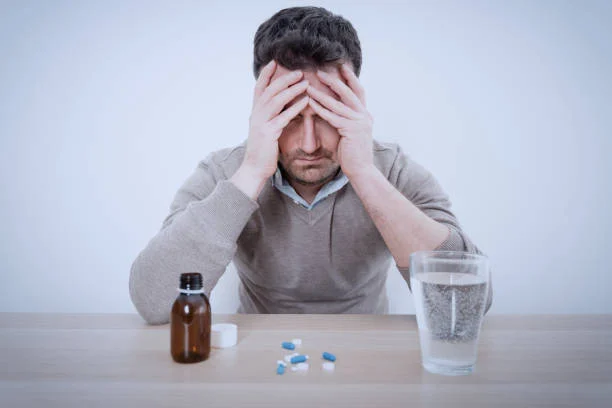Benzodiazepines are a class of medications commonly prescribed for anxiety, insomnia, seizures, and muscle spasms. While these drugs can be highly effective when used as directed, they also carry a risk of overdose, especially when abused or taken in combination with other substances. In this article, we provide a detailed examination of benzodiazepine overdose, including its causes, symptoms, treatment options, and strategies for prevention. Our aim is to offer comprehensive information to help individuals better understand the dangers of benzodiazepine misuse and the critical steps that can be taken in response to an overdose.

Understanding Benzodiazepines and Their Risks
Benzodiazepines, often referred to as “benzos,” are sedative medications that enhance the effect of a neurotransmitter called gamma-aminobutyric acid (GABA) in the brain. This action helps to calm the central nervous system, providing relief from anxiety, stress, and muscle tension. Some of the most commonly prescribed benzodiazepines include:
- Alprazolam (Xanax)
- Diazepam (Valium)
- Lorazepam (Ativan)
- Clonazepam (Klonopin)
While benzodiazepines can be highly effective for short-term use, they are also associated with a significant risk of addiction, tolerance, and overdose, especially when misused.
The Link Between Benzodiazepines and Overdose
Overdose occurs when a person takes a dose of benzodiazepines that exceeds the body’s ability to metabolize and process the drug. In some cases, benzodiazepine overdose is the result of intentional misuse or self-harm, while in other cases, it may occur accidentally due to combining benzodiazepines with other substances, such as opioids, alcohol, or other central nervous system depressants.
One of the main dangers of benzodiazepine overdose is the depression of respiratory function. At high doses, benzodiazepines can slow or even stop breathing, leading to hypoxia (lack of oxygen) and potentially life-threatening complications.
Symptoms of Benzodiazepine Overdose
Recognizing the signs of a benzodiazepine overdose is crucial for prompt intervention and treatment. Symptoms of overdose can vary depending on the specific benzodiazepine involved, the dose taken, and whether other substances were also consumed. Common signs of a benzodiazepine overdose include:
Physical Symptoms:
- Severe drowsiness or lethargy
- Slowed or irregular breathing
- Confusion or disorientation
- Loss of coordination and motor skills
- Hypotension (low blood pressure)
- Weak pulse
- Bluish tint to the lips or fingertips (indicating lack of oxygen)
Cognitive and Behavioral Symptoms:
- Impaired judgment or thinking
- Memory loss
- Slurred speech
- Difficulty waking up or remaining conscious
- Loss of consciousness or coma
In Severe Cases:
- Cardiac arrest
- Respiratory failure
- Death
It is important to note that combining benzodiazepines with other substances, such as alcohol or opioids, can amplify the effects and make an overdose more severe.
Immediate Treatment for Benzodiazepine Overdose
If you suspect someone is experiencing a benzodiazepine overdose, it is essential to seek emergency medical help immediately. In severe cases, overdoses can lead to life-threatening conditions that require immediate intervention. While awaiting professional medical assistance, there are a few steps that may help:
- Call Emergency Services: Dial emergency services (911 or the local equivalent) to ensure that trained medical professionals can respond as quickly as possible.
- Stay Calm and Monitor Breathing: Try to keep the individual awake and alert. Monitor their breathing; if they stop breathing, begin CPR if trained.
- Avoid Giving Additional Drugs or Food: Do not attempt to administer any other medications, including activated charcoal, unless directed by a healthcare professional.
Medical Treatment Options
Once a person reaches a medical facility, treatment for benzodiazepine overdose typically involves supportive care, which may include:
- Airway management: Ensuring the individual’s airway remains open and that they are breathing adequately.
- Intravenous fluids: To maintain blood pressure and support the cardiovascular system.
- Flumazenil: A benzodiazepine antagonist that can reverse the sedative effects of benzodiazepines. However, flumazenil is not always used, as it may cause seizures, particularly in individuals with a history of seizures or those who have taken other drugs in combination.
- Observation: The individual may be observed in a medical facility for several hours to ensure that they are stable and that symptoms do not worsen.
Prevention of Benzodiazepine Overdose
Preventing a benzodiazepine overdose requires a multifaceted approach that includes safe medication practices, education, and awareness. Below are key strategies to reduce the risk of overdose:
1. Use Benzodiazepines Only as Prescribed
The most effective way to prevent overdose is to use benzodiazepines exactly as prescribed by a healthcare provider. This includes following the dosage instructions and avoiding increasing the dose or taking the medication more frequently than recommended.
2. Avoid Mixing Benzodiazepines with Other Substances
Combining benzodiazepines with alcohol, opioids, or other sedative medications can significantly increase the risk of overdose. It is essential to avoid using these substances together and to inform healthcare providers about all medications and substances being used.
3. Monitor for Signs of Misuse
Individuals who use benzodiazepines for extended periods should be closely monitored for signs of misuse or dependence. Symptoms of misuse may include:
- Taking higher doses than prescribed
- Frequent requests for refills
- Doctor shopping (seeking prescriptions from multiple doctors)
- Physical or psychological dependence on the medication
4. Seek Alternatives for Long-Term Use
When possible, healthcare providers should consider non-pharmacological treatments for conditions like anxiety, insomnia, or pain, as long-term use of benzodiazepines can increase the risk of dependence and overdose.
5. Education and Awareness
Raising awareness about the risks of benzodiazepine overdose is crucial for preventing misuse and overdose. Public health campaigns, patient education, and training for healthcare providers on safe prescribing practices can all contribute to reducing the prevalence of overdose.
Risk Factors for Benzodiazepine Overdose
Certain factors can increase the likelihood of experiencing a benzodiazepine overdose. These include:
- History of substance abuse or addiction: Individuals with a history of drug or alcohol abuse are at higher risk of misusing benzodiazepines.
- Older age: Older adults may be more sensitive to benzodiazepines, which can increase the risk of overdose, especially when combined with other medications.
- Concurrent use of other medications: Taking multiple medications that depress the central nervous system, such as opioids, can increase the risk of respiratory depression and overdose.
- Mental health conditions: Individuals with untreated or poorly managed mental health conditions, such as depression or anxiety, may be at a higher risk for overdosing.

